Dyson V15 Detect vs Shark Stratos – which vacuum should you buy?
Find out which cordless vacuum comes out on top
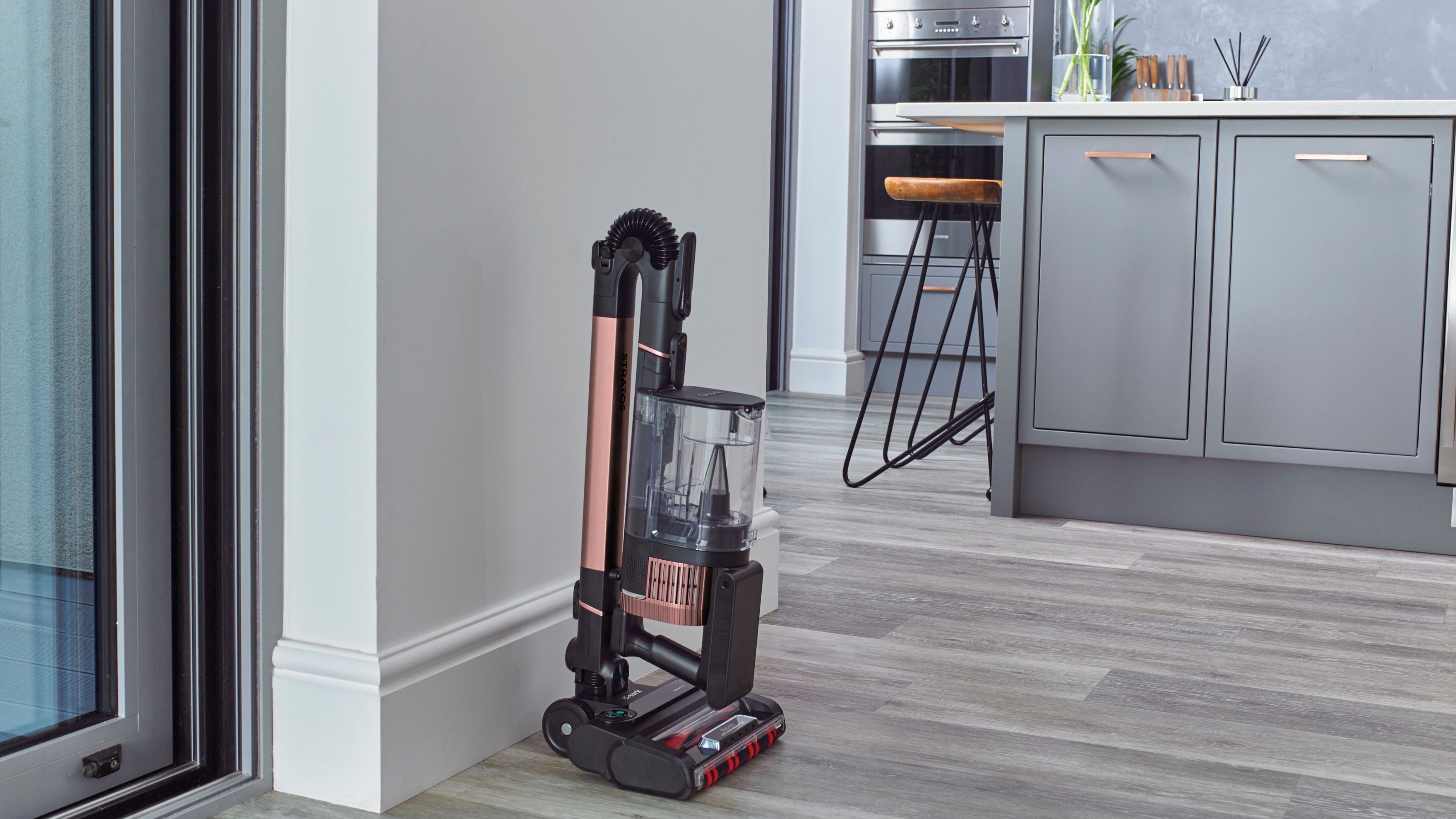

The V15 Detect and Stratos are two of the best-selling cordless sticks from vacuum titans Dyson and Shark. They share some features while boasting others that are unique to each, but which one is better, and which is right for your home?
I'm Homes & Gardens' home tech editor, and my team of product testers and I have reviewed 60 of the world's greatest vacuums. Our full review of the Shark Stratos is on the way, but I've personally tested the Dyson V15 Detect and found it to be one of the best cordless vacuums we've ever got our hands on.
Find out how these two vacuums from two of our favorite vacuum brands compare, assessing each on their cleaning performance, features, design and price.
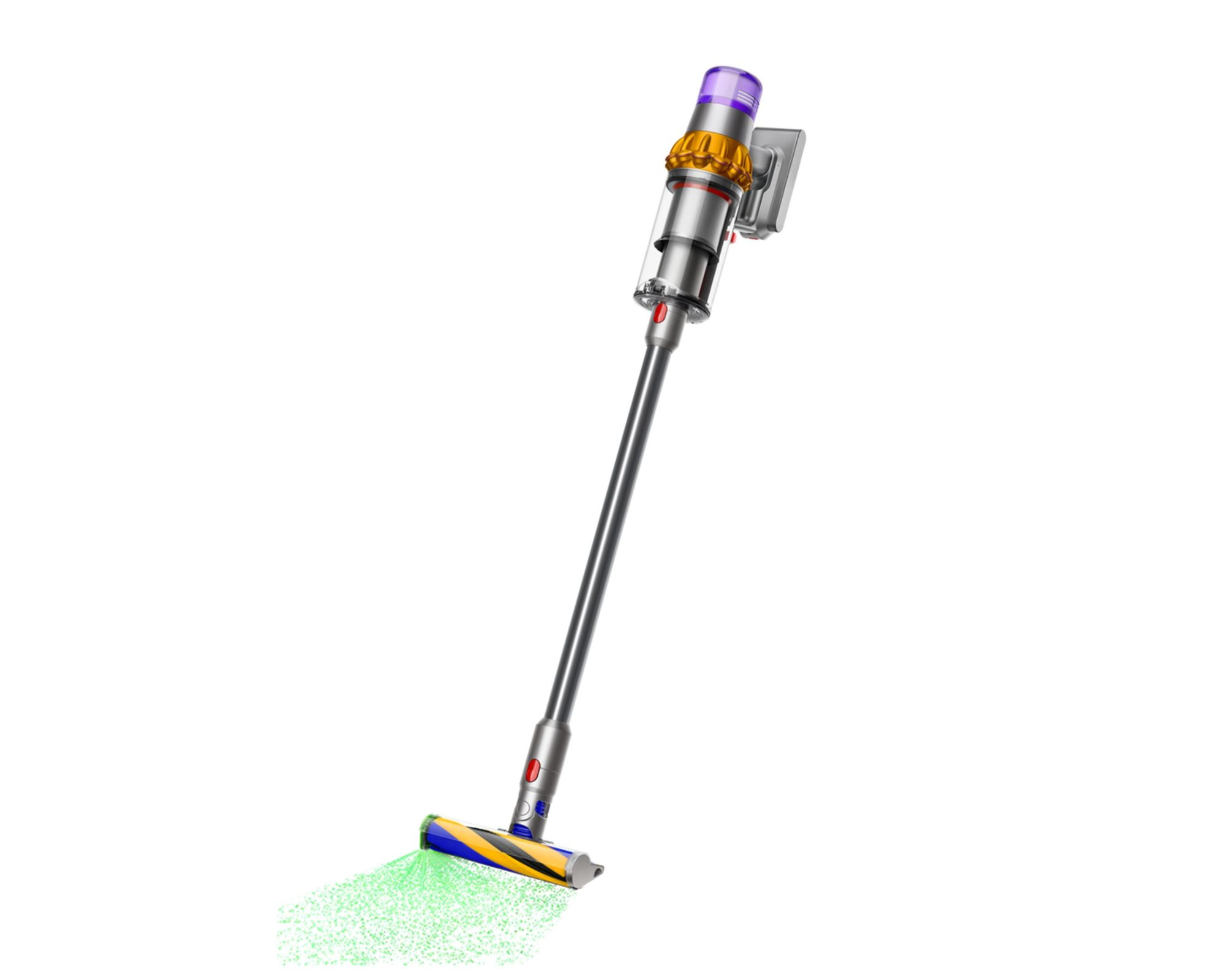
Maximum power: 240 air watts
Dust capacity: .2 gal
Runtime: Up to 60 minutes
Weight: 6.79 lb.
Filter: Advanced, whole-machine HEPA filtration
Warranty: 2 years
For
- + Flawless suction on all surfaces
- Lightweight
- Easy to maneuver
- Genuinely reveals invisible dust
- Automatically adjusts suction power when needed
- Easy to clean
Against
- Expensive
- Occasional delay on the Digital Motorbar brushroll spinning
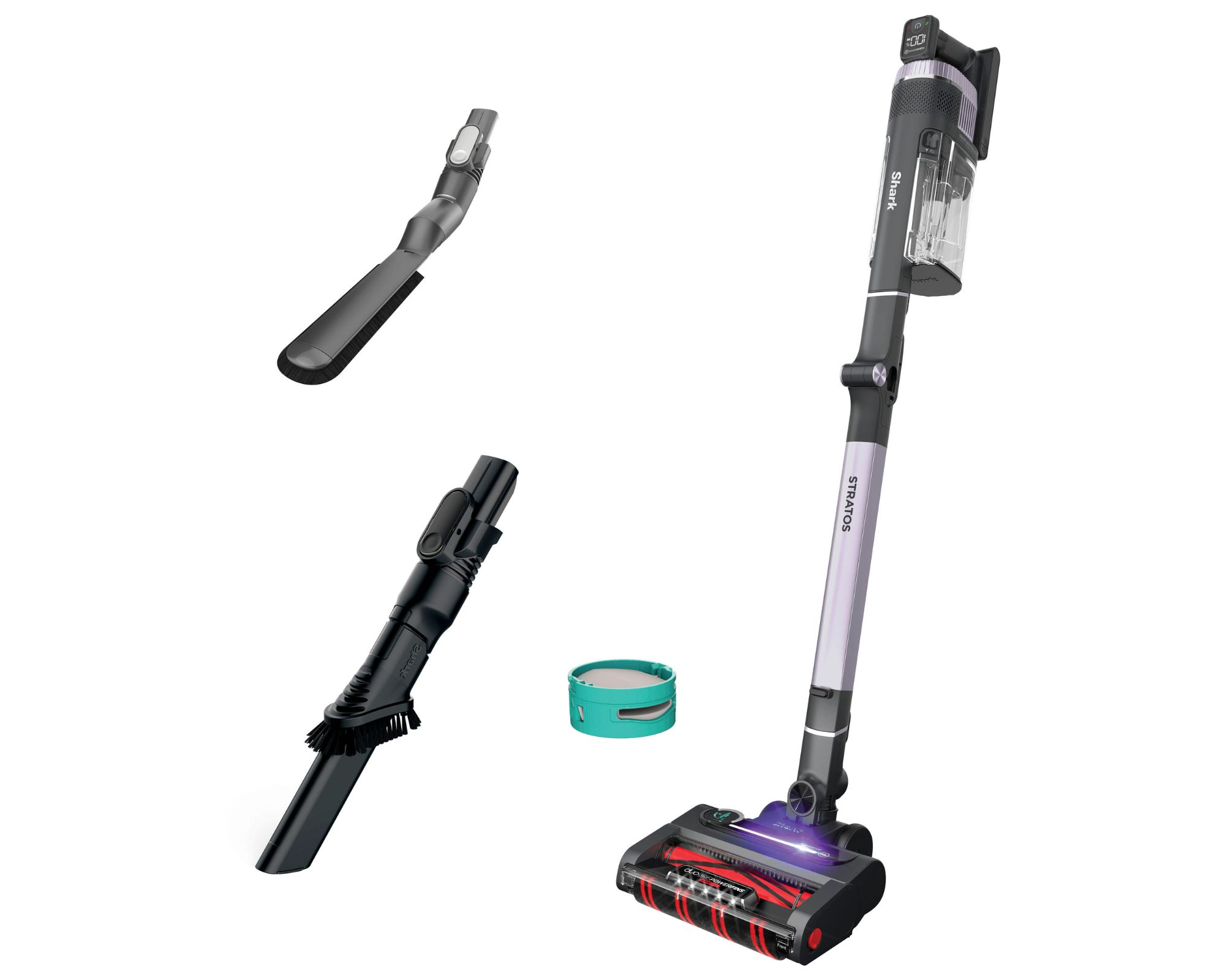
Maximum power: 309 watts (not air watts)
Dust capacity: .175 gal
Runtime: Up to 60 minutes
Weight: 8.90lb.
Filter: Washable HEPA + foam and felt filters
Warranty: 5 years
For
- Cleansense IQ is very effective
- Works well on carpets as well as hard floors
- Hinged stick can go under furniture
- Odor resistant
- Smart display
Against
- Brush head can feel bulky
- Bin capacity is quite small
- Can't be wall-mounted
- Dust tool didn't wow us
- No storage system included
Dyson V15 Detect vs Shark Stratos: What's the difference?
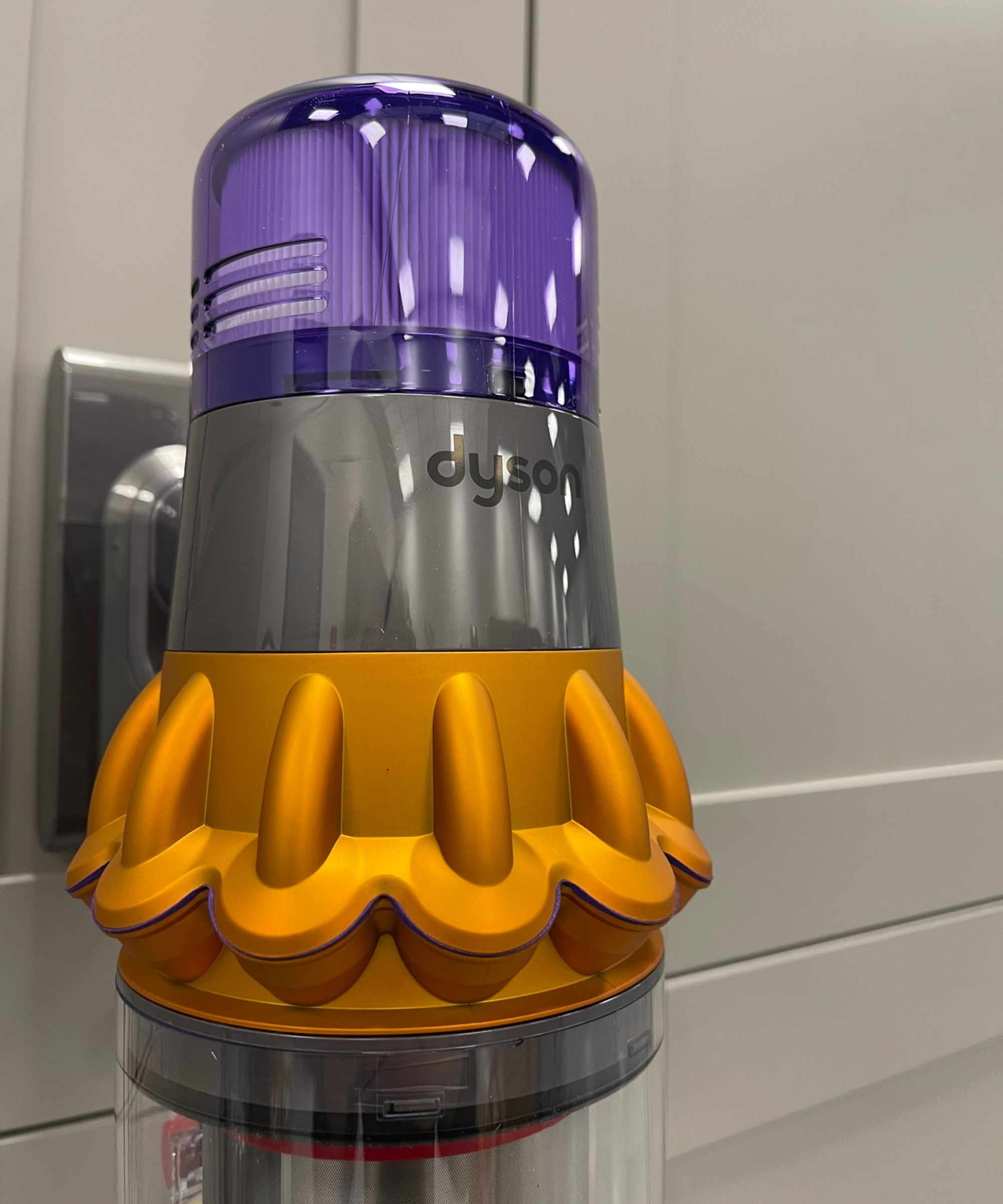
Both vacuums can sense how dirty your floors are and adjust their suction power to the best level. This is a super useful feature in a cordless vacuum as it gives you extra power when it's needed but preserves the battery life when it isn't. It also saves you from having to change the settings every time you pass from hard floors to vacuuming carpet or a rug.
A difference between them is how they're each designed to be a multi-surface vacuum. The Dyson has two brushrolls, the Motorbar and Fluffy Optic, that are best suited to carpets and hard floors respectively. The Motorbar has anti-tangle vanes and bristles to dig dirt from carpet while the Fluffy Optic has a soft brushroll for safe and thorough hard floor cleaning.
The Shark Stratos instead has one floorhead with two brushrolls, one bristled and one soft, called the DuoClean PowerFins HairPro. The Dyson's separate floorheads offer more focused cleaning, while the Shark's avoids you having to swap them out as you vacuum around the house.
What makes the Dyson stand out is its built-in laser that illuminates invisible dust to make it easier to identify areas you might have missed. You'd be surprised how much dust it actually reveals that the naked eye otherwise can't see. The Shark Stratos has LED headlights but they only really help in dark areas, like cleaning under furniture.
But a big win for the Shark Stratos is its flexible wand. It can bend allowing you to reach those trickier areas without having to strain your back. It's a feature that they've kept in their latest model, the Shark Cordless PowerDetect – one of our favorite cordless vacuums at the moment.
The Stratos is a bulkier vacuum, weighing 8.90 lbs. The Dyson V15 Detect is much nimbler, with a sleeker design and weighing in at just 6.79 lbs.
Dyson V15 Detect vs Shark Stratos: Suction
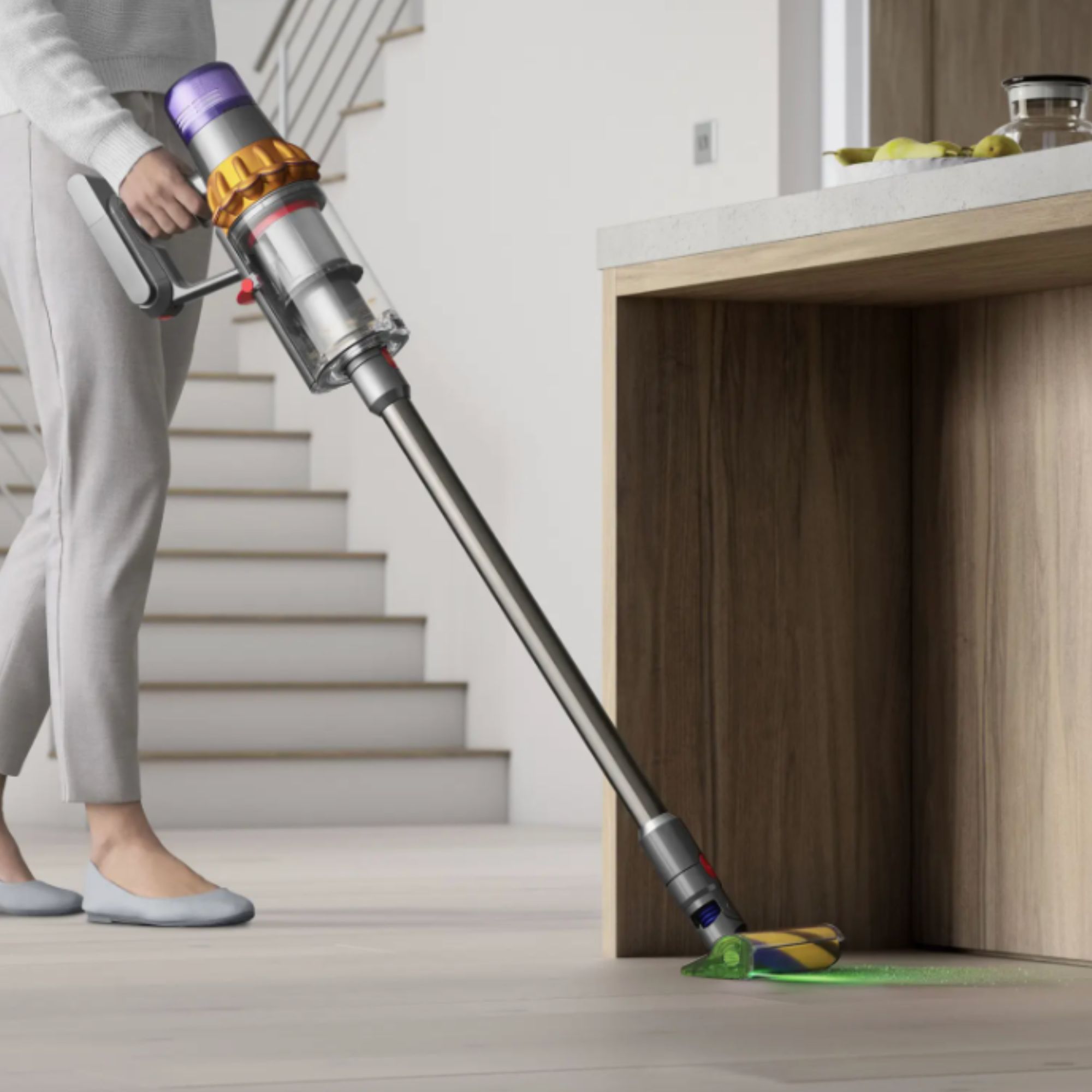
This is where the Dyson V15 Detect shines, as it boasts 240 air watts which is similar to what you'd find in the best upright vacuums (find out more about air watts and watts in our vacuum jargon buster). Usually cordless vacuums sacrifice suction power in exchange for a more lightweight build, more versatility and taking up less space when storing the vacuum.
But the V15 Detect is just as powerful as the big machines, which is why it's consistently been one of our favorite and best-performing vacuums we've tested. Shark doesn't list the Stratos' air watts, but from our tests, nothing has come close to the V15's cleaning performance.
WINNER: Dyson V15 Detect
Dyson V15 Detect vs Shark Stratos: Pet hair
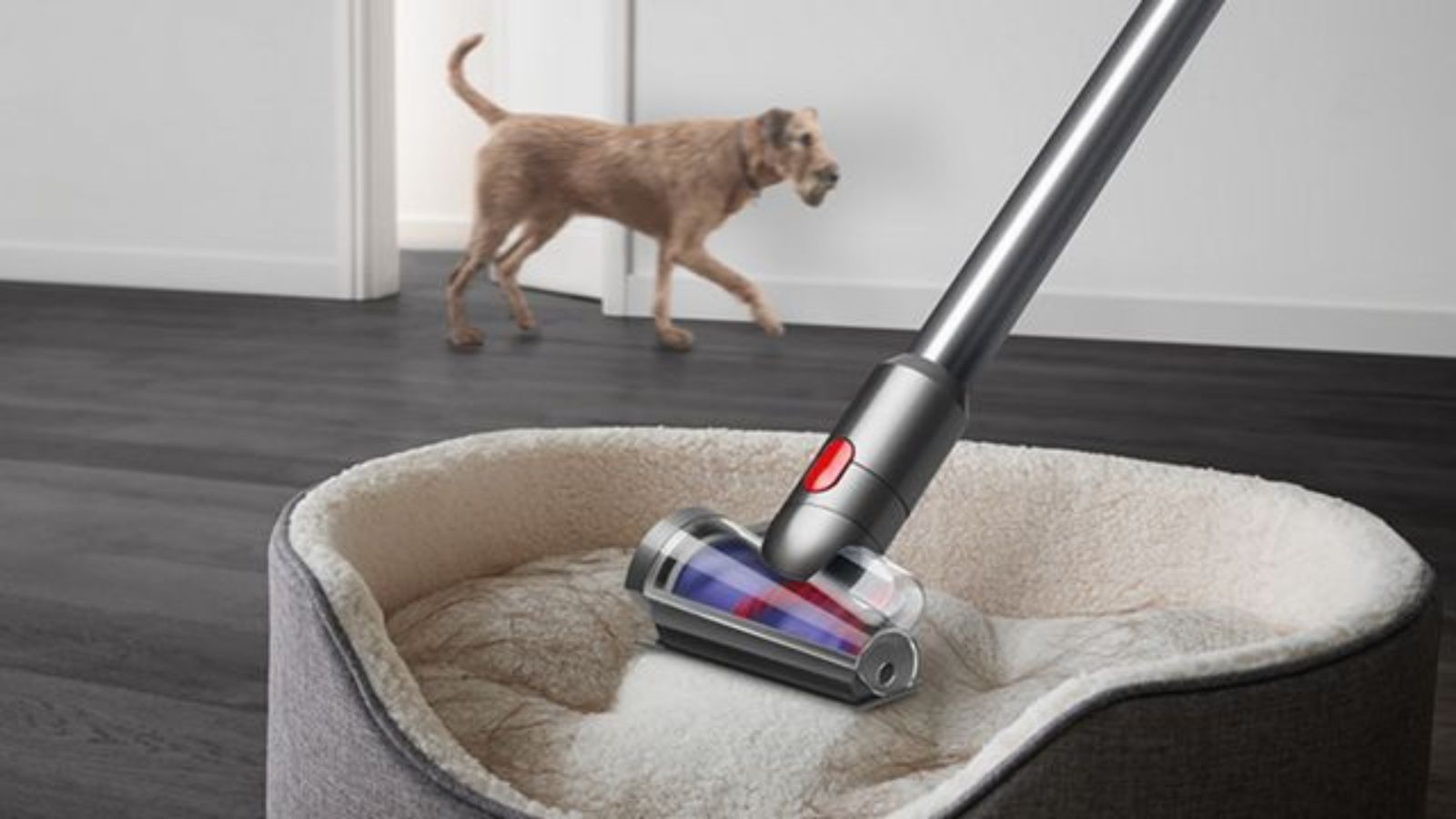
The Dyson V15 Detect is our best vacuum for pet hair as it's strong enough to (seemingly effortlessly) pull hair and fur out of carpets, furniture and pet beds. I tested it at a local pet shelter and it vacuumed even the toughest fabrics, like a high-friction entrance mat, better than some of the bigger and more expensive best Miele vacuums.
From the hours I've spent vacuuming pet hair from carpets, there's never been any hair stuck in the Dyson's brushroll.
WINNER: Dyson V15 Detect
Dyson V15 Detect vs Shark Stratos: Smart features
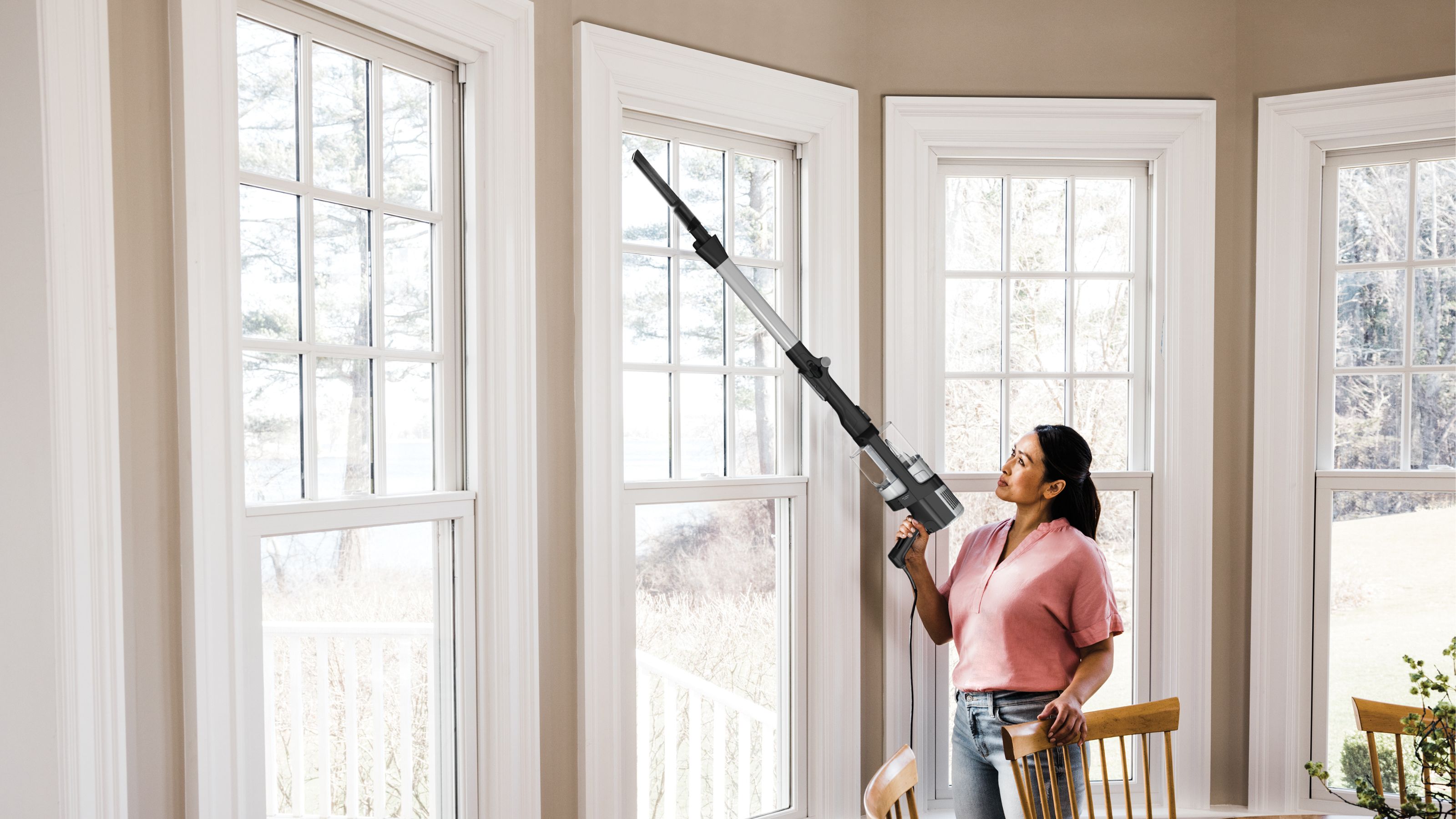
On paper, the Shark Stratos and the Dyson V15 Detect share a lot of the same features. The Dyson claims to "intelligently optimize suction and run time" in its Auto mode, and the Shark's Sense IQ mode also automatically adjusts the power level depending on the level of dirt on your floors.
In testing, we found that the Shark had a more sensitive auto-adjust mode, and that it could ramp up to clean piles of rice or cereal with no real difficulty. The Dyson's auto-adjust setting is still very sensitive, but we found that it was a lot more effective on hard floors than carpets.
But the Dyson's green laser really is in a league of its own, and the Dyson laser vacuums are absolutely worth it. They also count each individual particle, which isn't at all an essential feature, but it does help show you which areas in your home are dirtiest and when you know you've finished vacuuming mattresses and furniture.
Winner: Dyson V15 Detect
Dyson V15 Detect vs Shark Stratos: Battery life
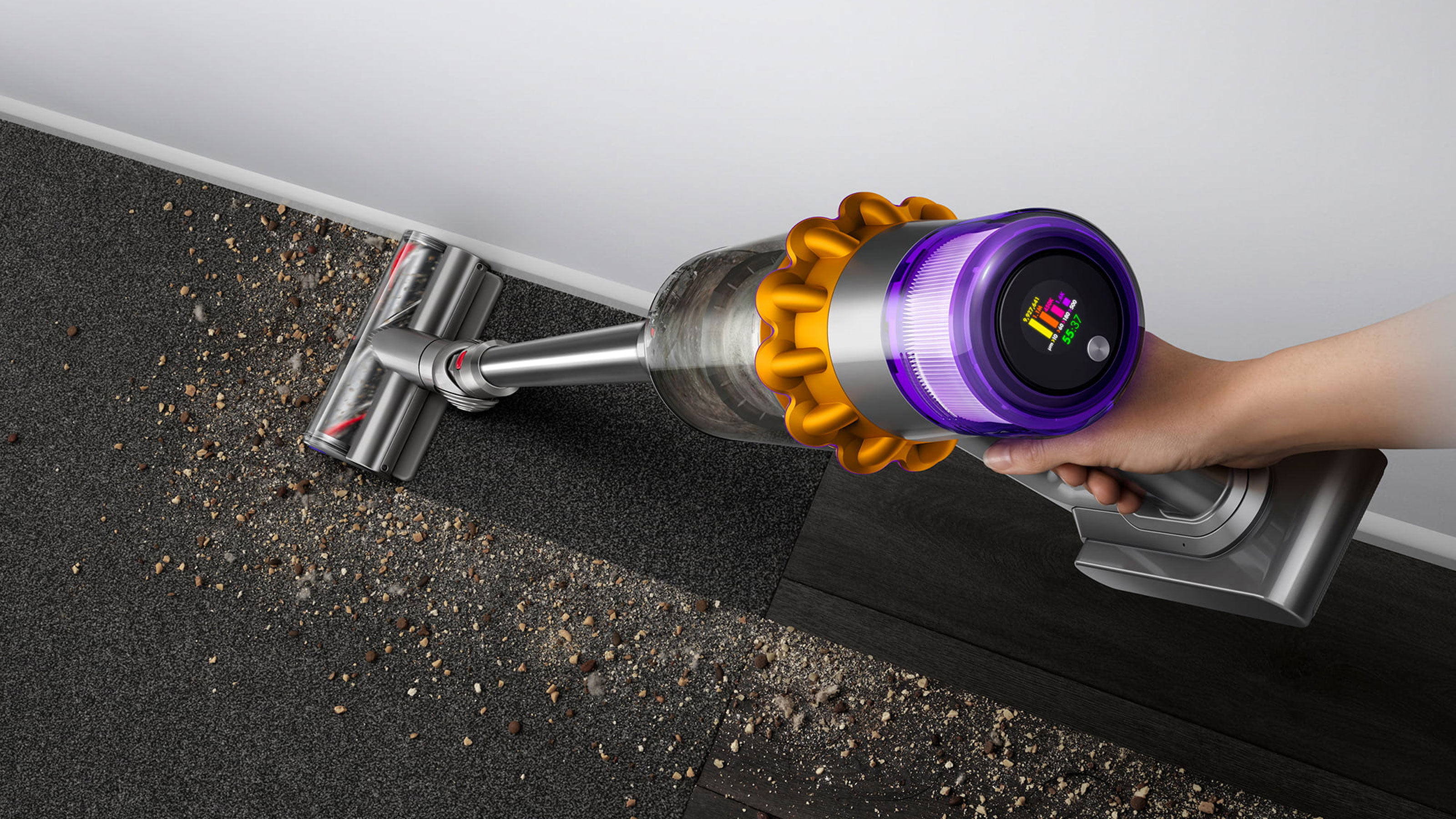
The Shark Stratos has a removable battery that has a runtime of up to 60 minutes. If you opt for a model that comes with two batteries or spend a little more on an extra battery, this can be extended even further.
The Dyson also has a removable battery pack, and also runs up to 60 minutes. In our test we found that this held true, even on high-powered mode. However, backup batteries are less readily available than for the Shark.
Both vacuums have a maximum 60-minute runtime. But as both vacuums have automatic, responsive suction power, it'll never really be 60 minutes. It's more like 30 to 40 if you're on auto mode, as they can only run for 60 minutes on the lowest setting and without any motorized attachments.
You can buy a spare battery for both vacuums that will double your runtime between charges. The Shark replacement battery costs $83.99 but the Dyson replacement battery costs a whopping $149.99 – almost double for the same runtime.
Winner: Shark Stratos, for the more affordable second battery
Dyson V15 Detect vs Shark Stratos: Hard floors

The Dyson V15 Detect is one of the best vacuums for hardwood floors with its built-in green laser that reveals invisible dust. It shows if you've missed even the tiniest specks of dust and has no problem vacuuming messes of all sizes in a single pass.
The floorhead also uses a soft brushroll that's completely safe on delicate surfaces like wood and tile, and the floorhead itself has smooth edges to prevent damage. The Shark Stratos' floorhead is said to be multi-surface, but any vacuum with a bristled brushroll has the potential to damage gentle floors, and as you only get one floorhead, it's always being used.
Winner: Dyson V15 Detect
Dyson V15 Detect vs Shark Stratos: Carpet
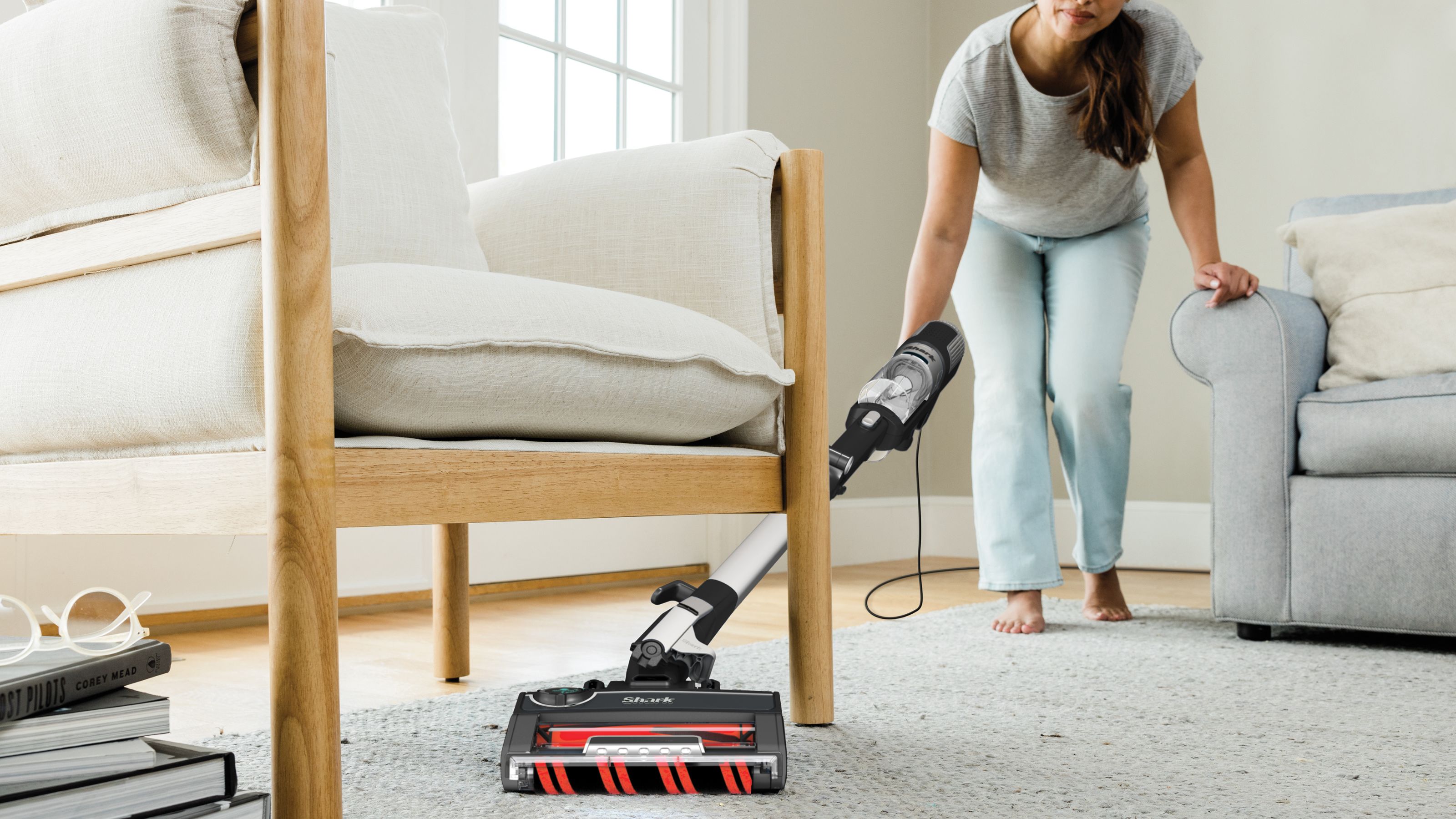
Cordless vacuums aren't often the best on carpets, but both the Dyson and Shark perform well. The Dyson still takes the lead on this one though – its Motorbar floorhead is the best we've ever tested on carpet from a cordless.
The vanes do an excellent job of pulling all sorts of dirt and dust out of the carpet fibers. Thin combs are built into the floorhead that remove all hair and dust to keep it clean.
By contrast, the Stratos also has an anti-hair-wrap feature on its singular brush head. It also has an odor neutralizer which will help to eliminate the odors that can get trapped within carpet fibers, leaving a fresher scent as you clean.
Also, its dual brushrolls mean that the super-fine particles that are brushed up by one brushroll will be captured by the other, potentially leaving less behind. But still, the Dyson's suction and floorhead design cleans more effectively.
WINNER: Dyson V15 Detect, one of our best vacuums for carpet
Dyson V15 Detect vs Shark Stratos: Price
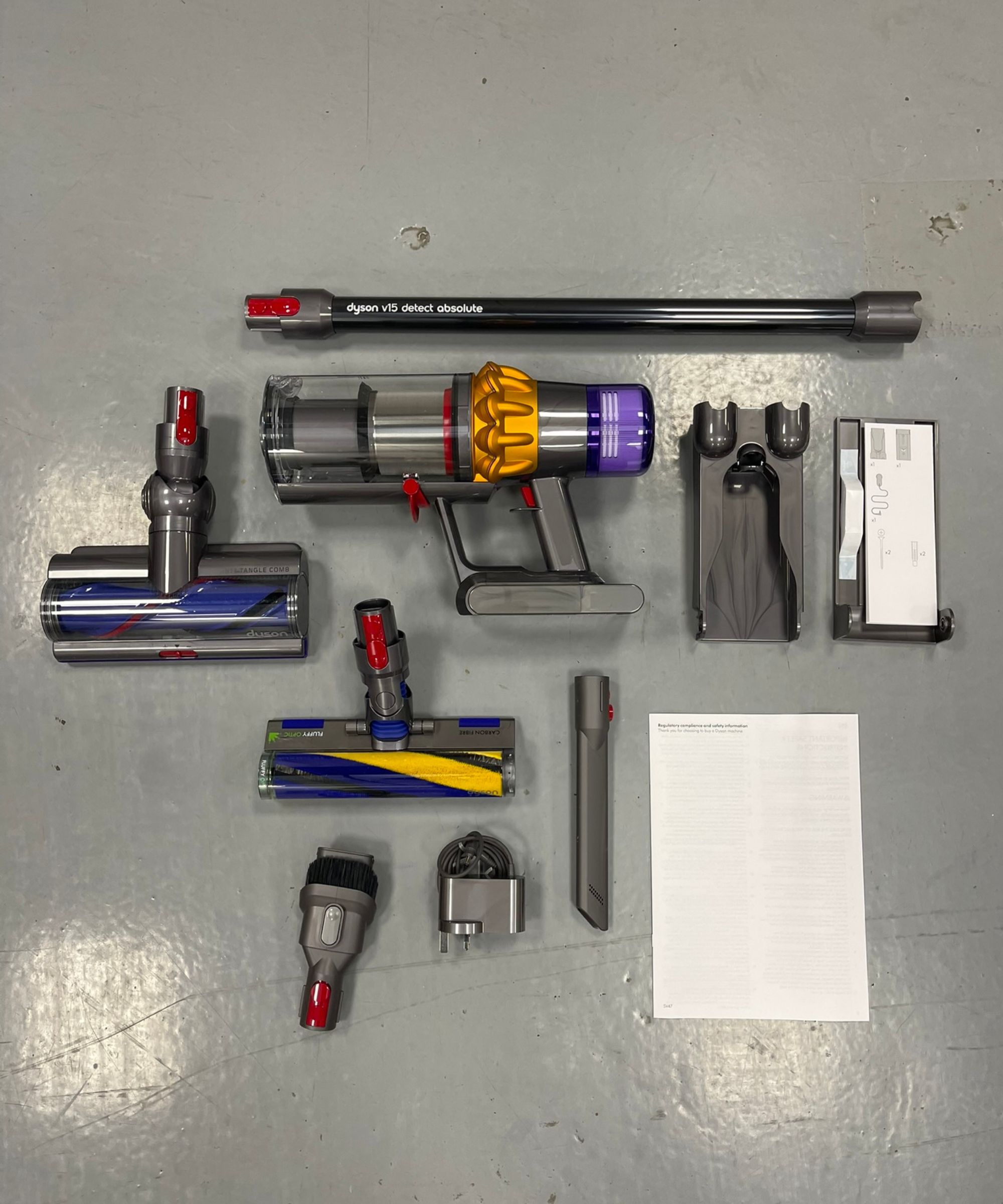
Now for the big one: price. The Dyson V15 Detect retails for a huge $750 while the Shark Stratos goes for $499.99. They're both two of the most expensive cordless vacuums in their range. The Dyson is essenitally a 50% price increase compared to the Shark, so consider whether the Dyson's improved cleaning power is worth that extra spend.
From years of checking the best vacuum deals during every sale season, I don't think you should ever be paying full price for either of these vacuums. Dyson and Shark both run frequent sales throughout the year and I've seen discounts of $100s on these models, so if you time it right, you could be paying almost half what they're listed at.
WINNER: Shark Stratos
Dyson V15 Detect vs Shark Stratos: Which should you buy?
If you're a self-professed clean freak, or your home has lots of carpets and/or pets, the Dyson V15 Detect is absolutely worth every penny. It really is one of the most powerful vacuum cleaners in the world with smart features that will transform how clean your home can be, and should be treated as an investment.
But the Shark Stratos is still a highly capable vacuum cleaner, with reliable suction, less admin and some useful features like a flexible wand and odor neutralization that make it a joy to use. Personally, I recommend the Dyson, but you're still winning if you save money and opt for the Shark.
Next, consider one of the best Dyson alternatives to see how else you could save money on a trusty new vacuum.
Sign up to the Homes & Gardens newsletter
Design expertise in your inbox – from inspiring decorating ideas and beautiful celebrity homes to practical gardening advice and shopping round-ups.

Millie Fender is Head of Reviews on the Homes and Gardens Ecommerce team. She specializes in cooking appliances, such as the best kettles, and also reviews outdoor grills and pizza ovens. Millie loves to bake, so she will take any excuse to review stand mixers and other baking essentials. When she's not putting products through their paces in our dedicated testing kitchen, Millie's reviews are conducted at home, meaning she uses these products in her own day-to-day life.
You must confirm your public display name before commenting
Please logout and then login again, you will then be prompted to enter your display name.
-
 5 surprising but brilliant ways to clean with old socks – from perfectly buffing stainless steel to deterring pests naturally and more
5 surprising but brilliant ways to clean with old socks – from perfectly buffing stainless steel to deterring pests naturally and moreTackle dust in tricky corners, clean your mirrors and even banish bad odors with those rogue single socks
By Andy van Terheyden Published
-
 How to grow astilbe – expert advice on cultivating this shade-tolerant flowering perennial
How to grow astilbe – expert advice on cultivating this shade-tolerant flowering perennialShade-tolerant and pest-resistant - astilbe are hardy and tough perennials that can thrive in many settings
By Ellen Wells Published
-
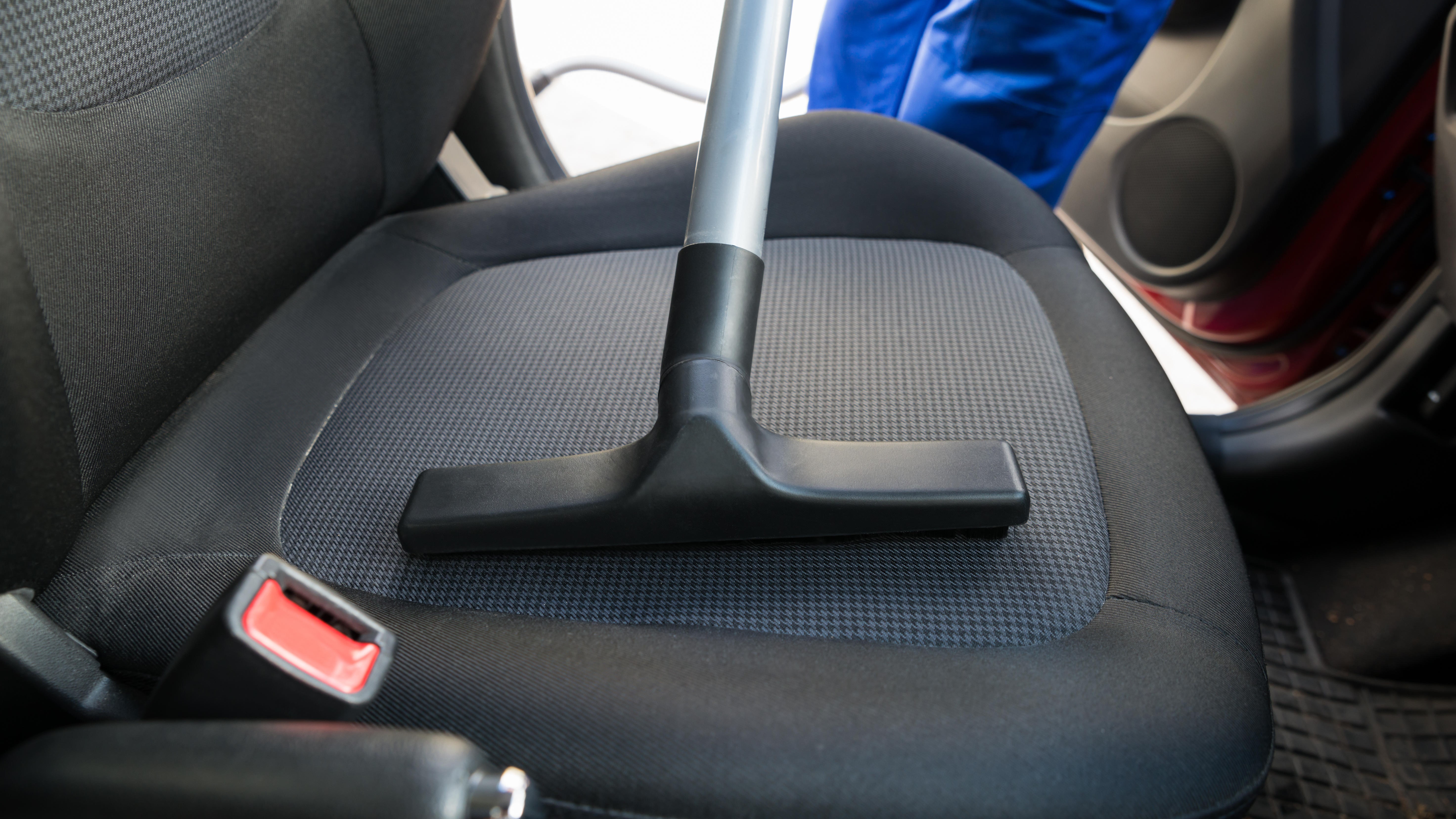 Best car vacuums – our top wet/dry, cordless and upright vacs, plus recommendations from professional car cleaners
Best car vacuums – our top wet/dry, cordless and upright vacs, plus recommendations from professional car cleanersAlong with our 200+ hours of vacuum testing, we spoke with professional car detailers to find out exactly what makes the best car vacuum
By Dan Fauzi Published
-
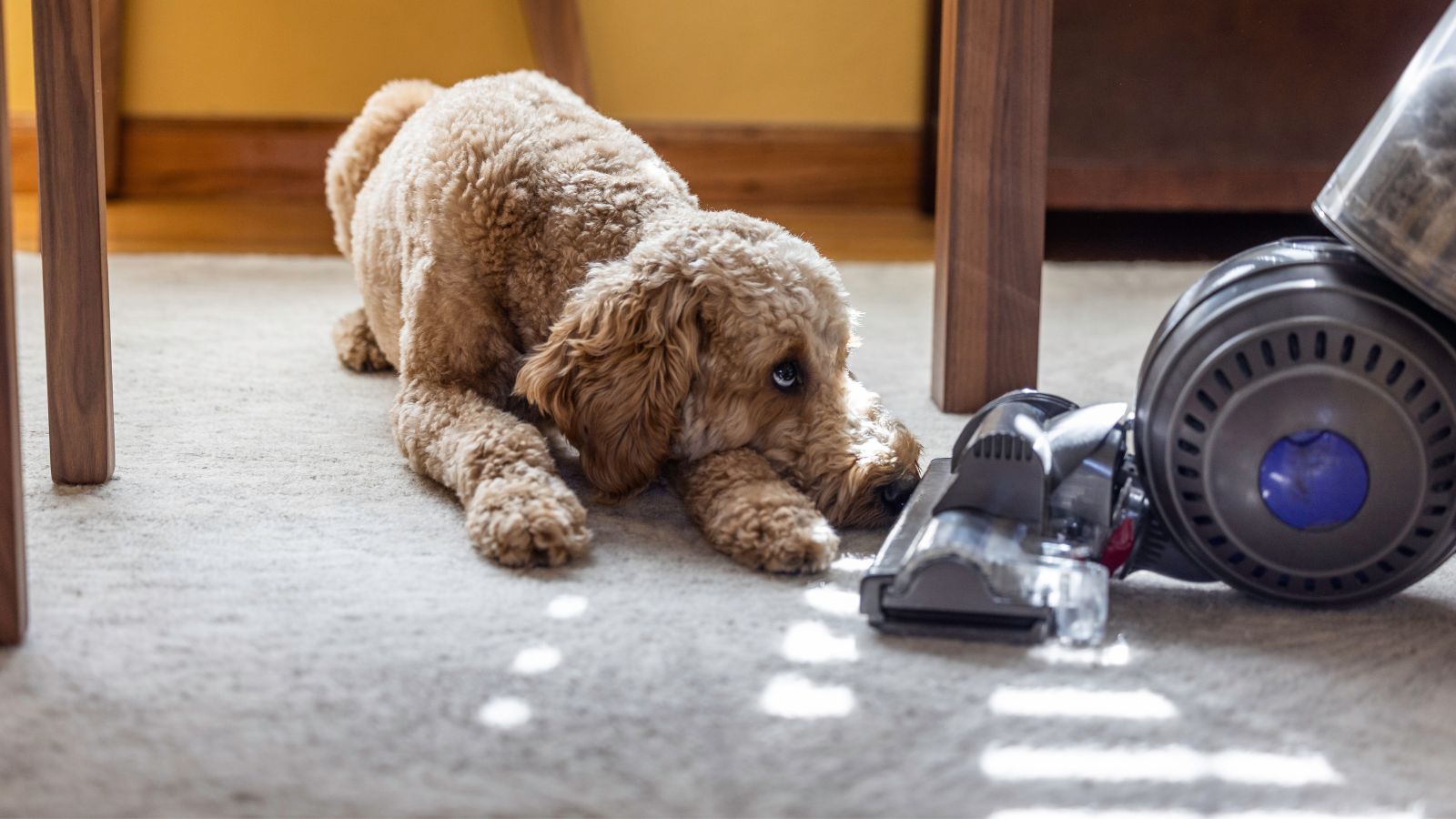 The 7 best vacuum cleaners for carpet – tested by our appliance editors for deep cleaning across all carpet types
The 7 best vacuum cleaners for carpet – tested by our appliance editors for deep cleaning across all carpet typesTo find vacuum cleaners that can properly tackle high-pile and low-pile carpets, we've spent hours testing the world's best
By Dan Fauzi Published
-
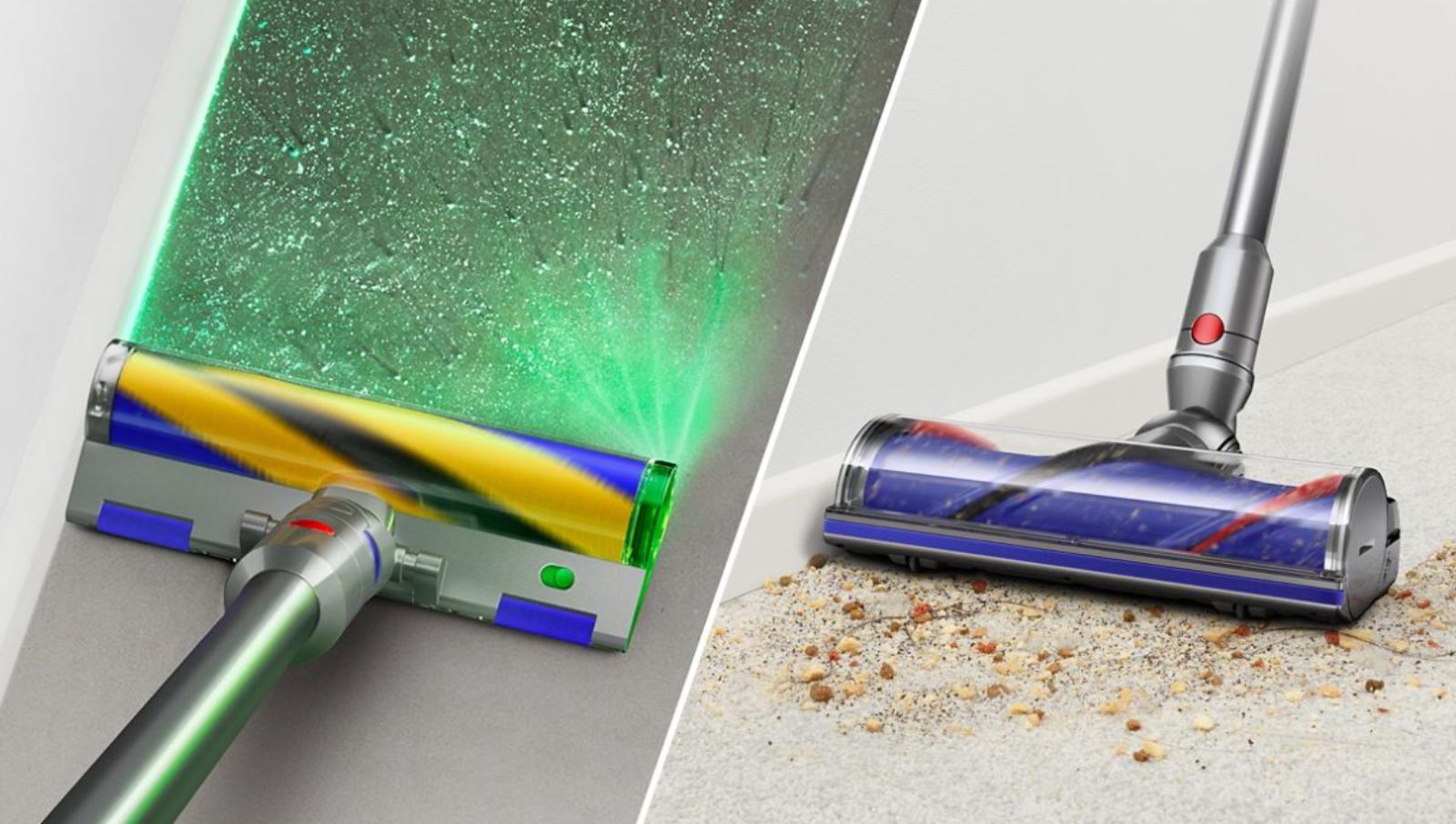 Dyson V12 Detect Slim review – impressive power at a reasonable price
Dyson V12 Detect Slim review – impressive power at a reasonable priceThe V12 Detect Slim is a more affordable offering from Dyson, carrying their unrivaled 'detect' technology in a slimmer and lighter design
By Dan Fauzi Published
-
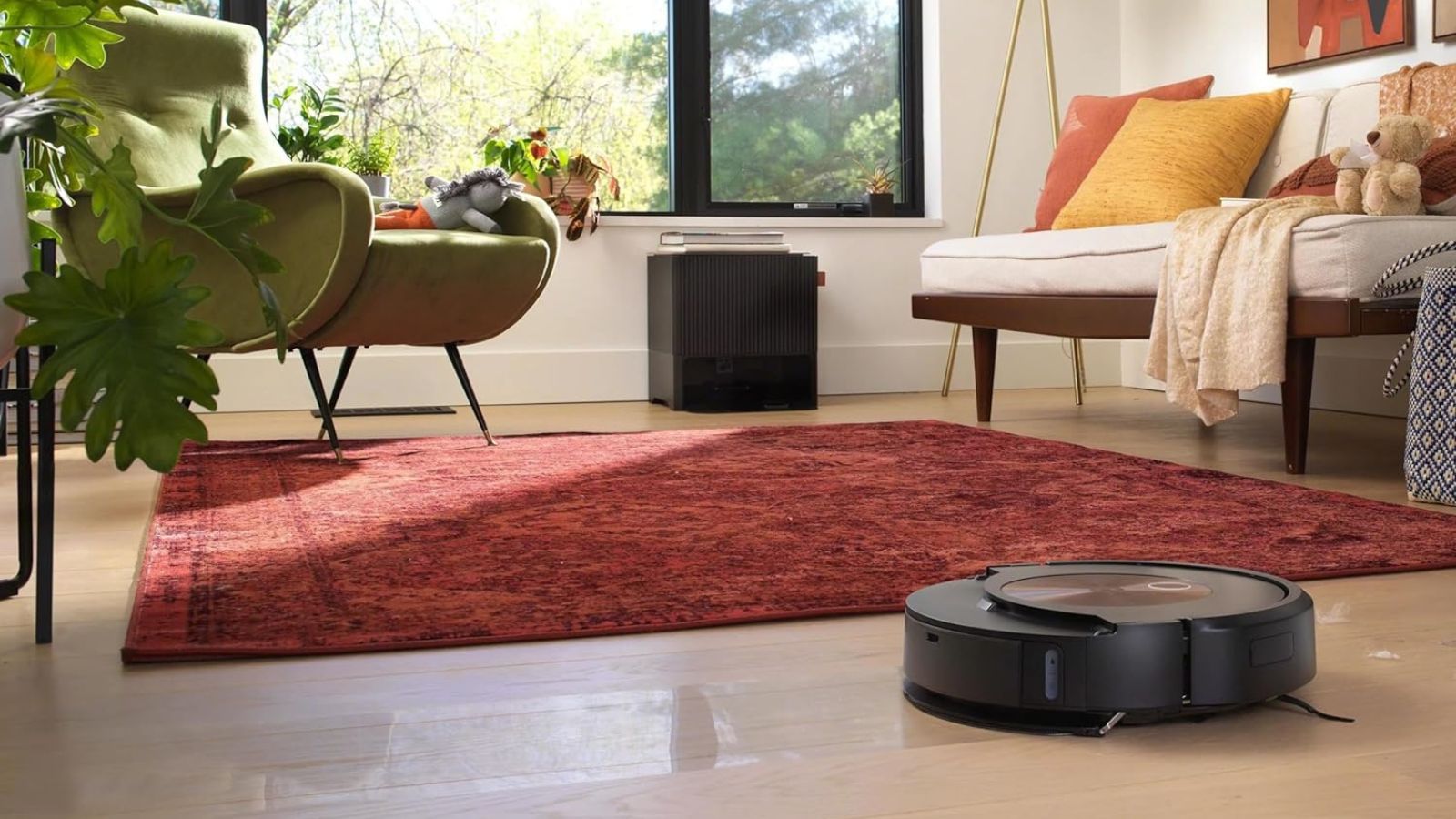 iRobot Roomba Combo j9+ robot vacuum review – 1 year of use later, this remains one of the best I've tested and is worth every cen
iRobot Roomba Combo j9+ robot vacuum review – 1 year of use later, this remains one of the best I've tested and is worth every cenThe iRobot Roomba Combo j9+ vacuum and mop is the best robot I've ever tested. After trialling it for more than a month, I found it's one of the very best.
By Alex David Published
-
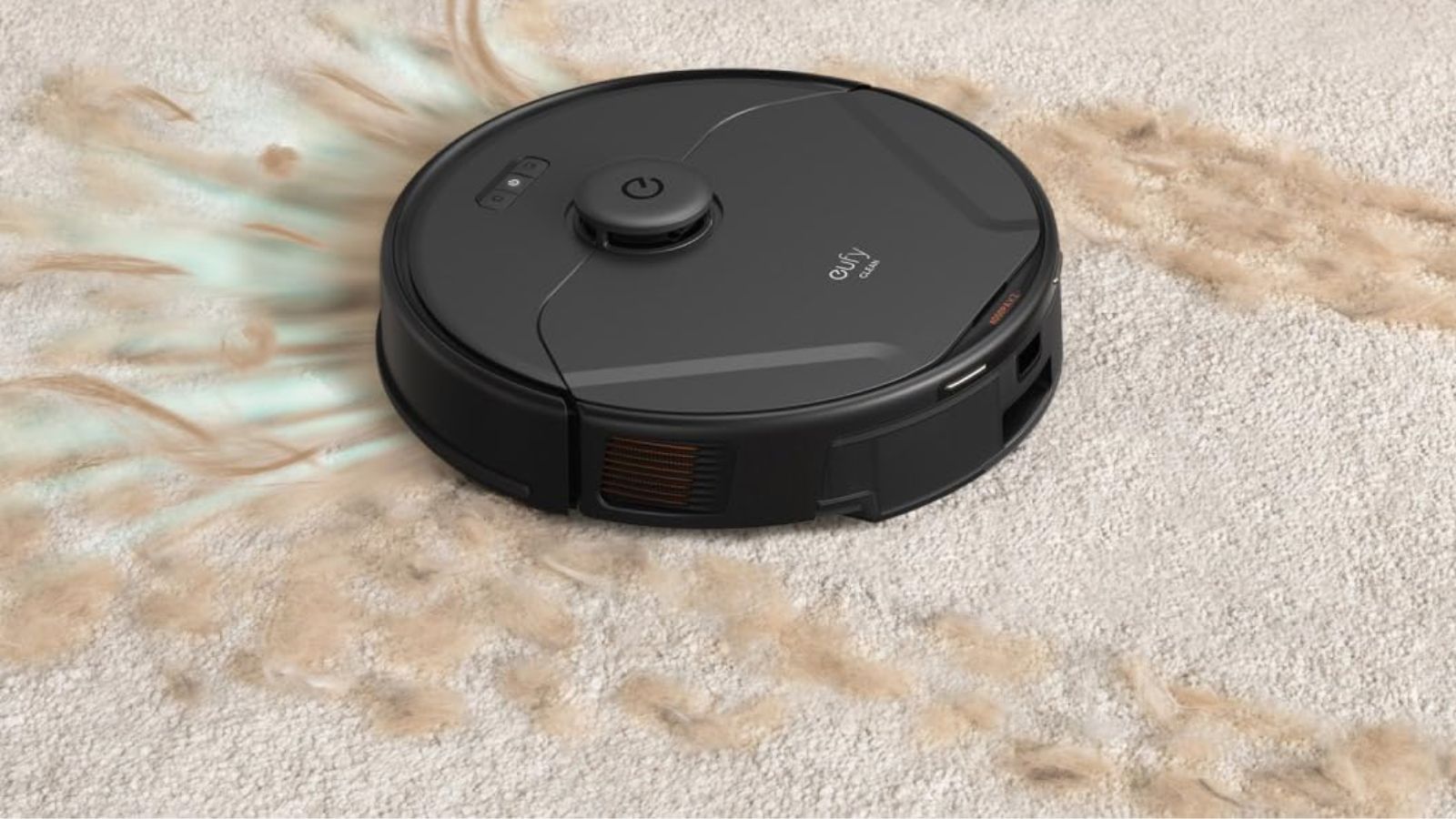 Eufy X8 Pro robot vacuum review – quick, slick, and effective, even years after its debut
Eufy X8 Pro robot vacuum review – quick, slick, and effective, even years after its debutThe Eufy X8 Pro Robot Vacuum claims useful detection, anti-hair wrap, and intelligent features. I tested it for weeks to see whether it's worth the money.
By Laura Honey Published
-
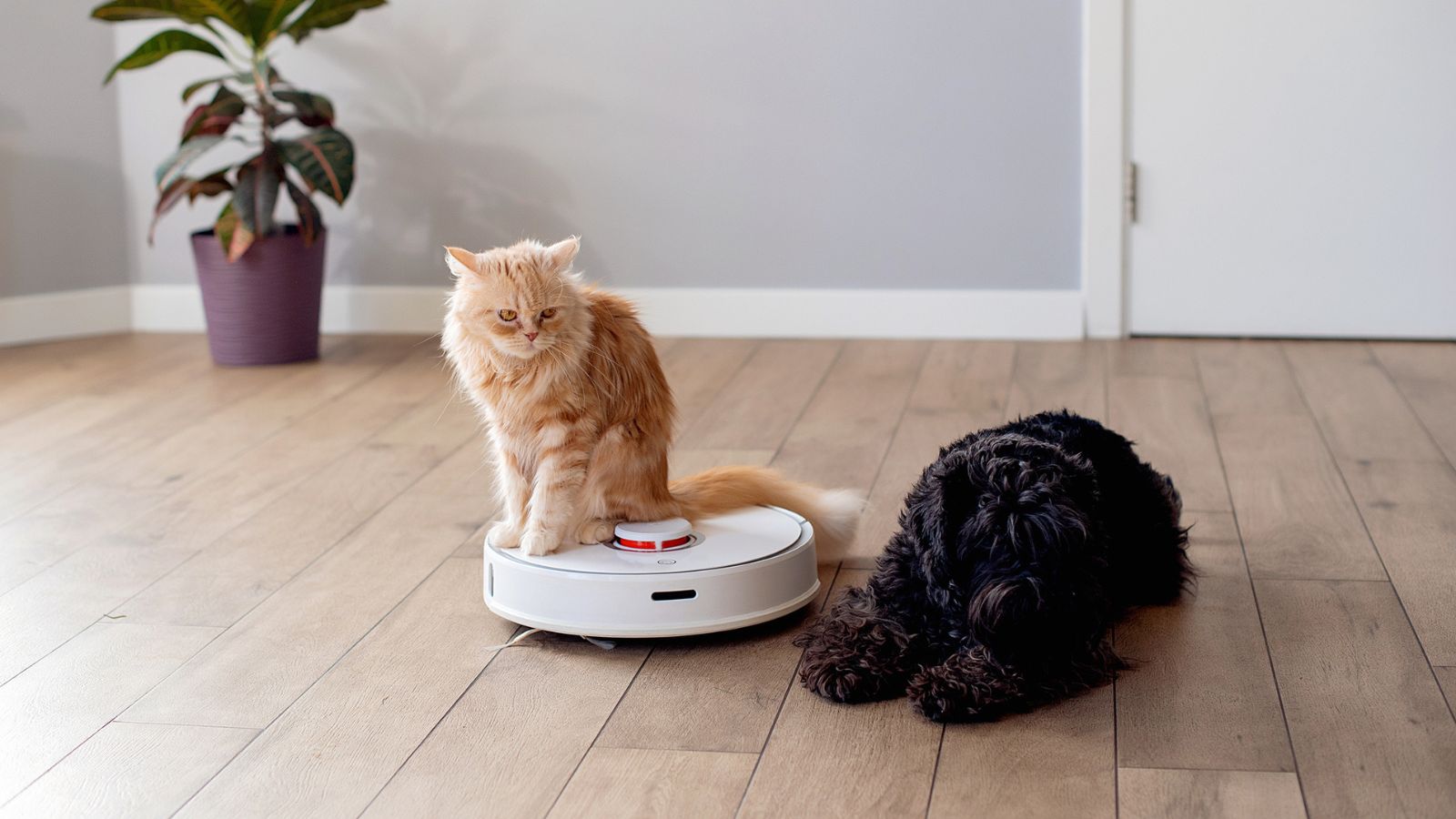 Best robot vacuum for pet hair: tested by experts
Best robot vacuum for pet hair: tested by expertsThe best robot vacuum for pet hair will take the stress out of the fly-aways. Here's our top picks
By Dan Fauzi Last updated
-
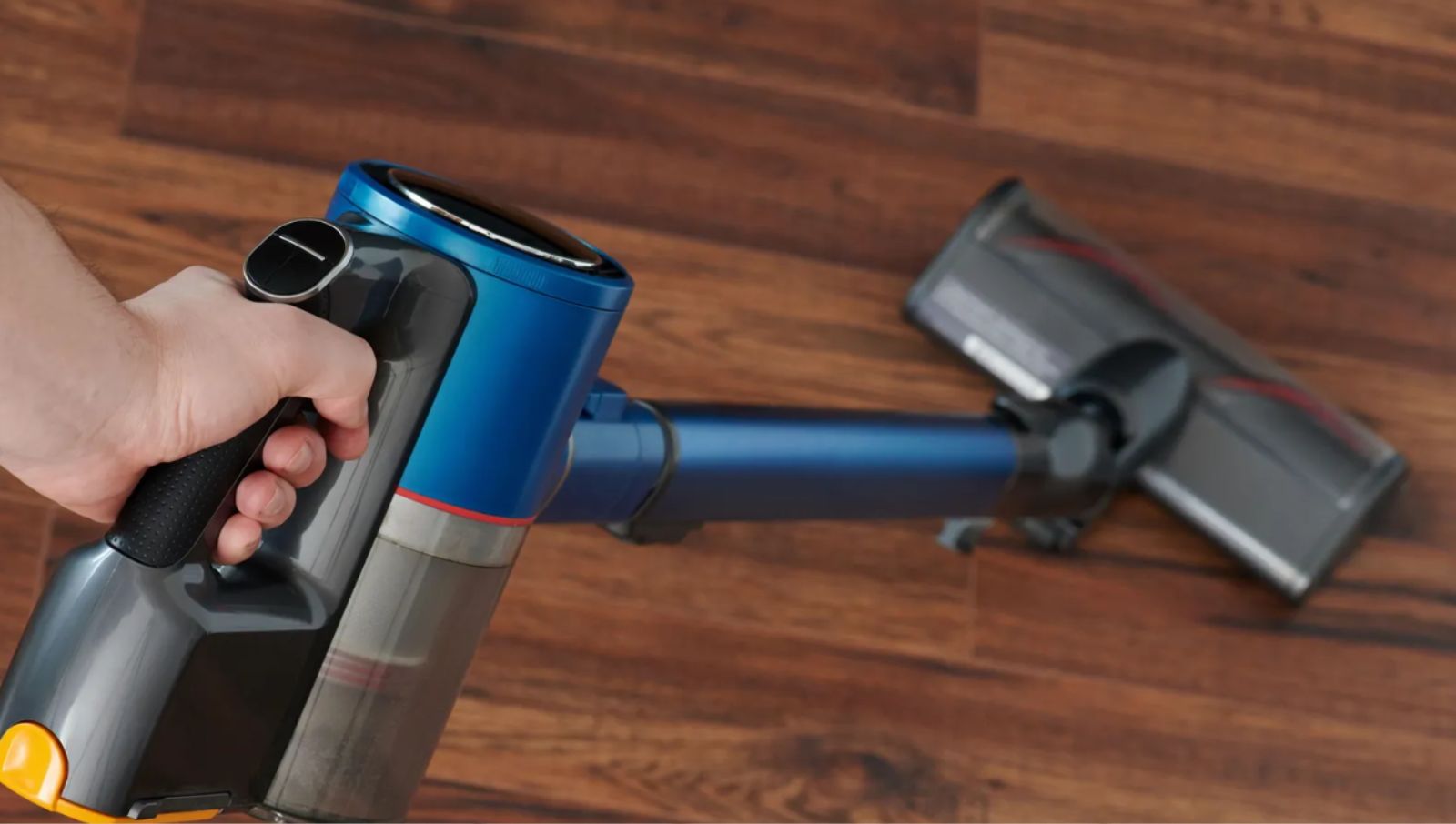 Best vacuums for hardwood floors: After 1000+ hours of testing, these are the top picks for safe brushrolls, smooth mobility, and powerful suction
Best vacuums for hardwood floors: After 1000+ hours of testing, these are the top picks for safe brushrolls, smooth mobility, and powerful suctionFrom our extensive testing, these are the best vacuums to buy if you have hardwood floors, with safe brush rolls, smooth mobility and powerful suction
By Dan Fauzi Last updated
-
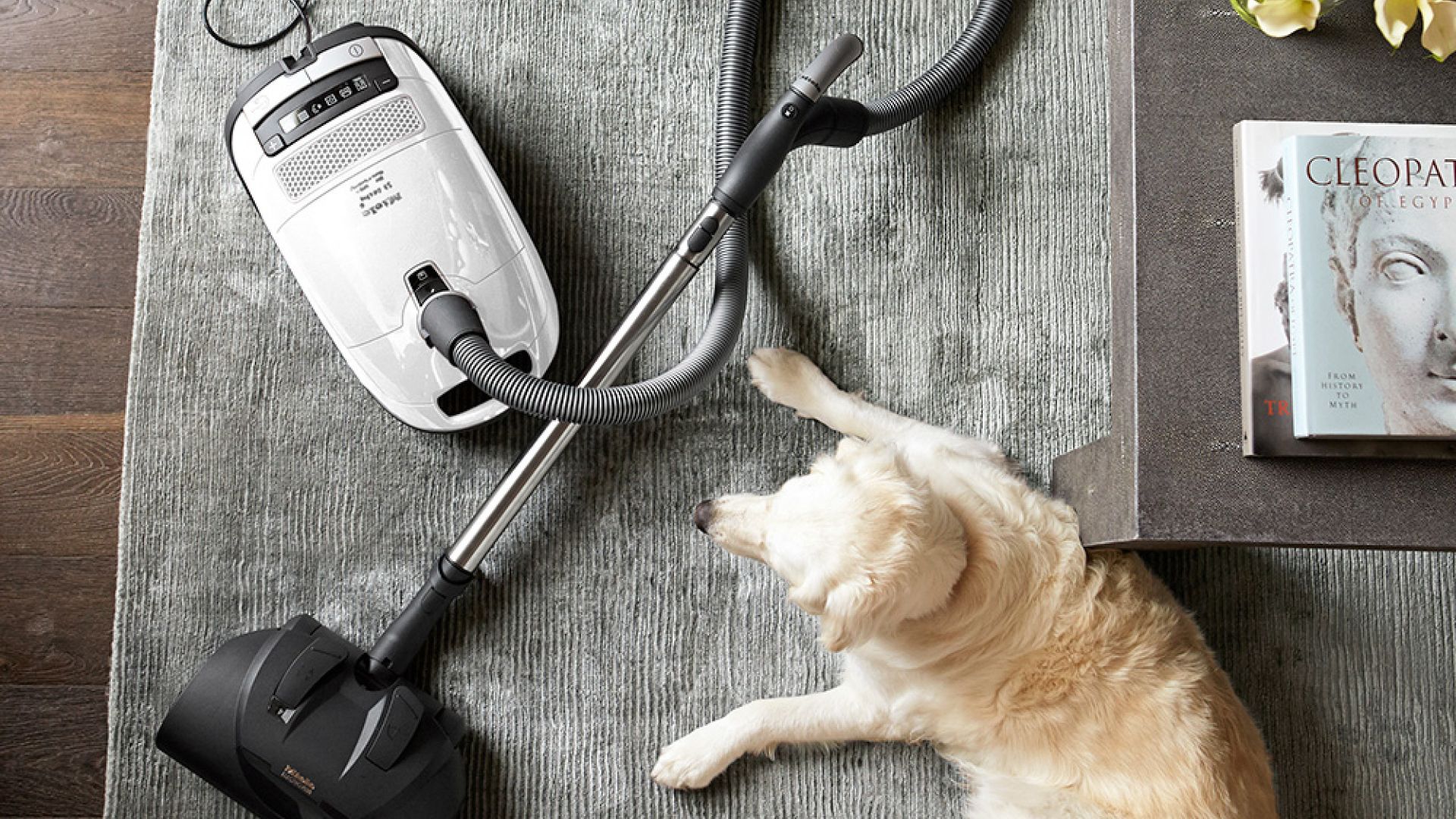 Miele Complete C3 Cat & Dog Canister Vacuum review – it's great, but doesn't deliver the perfect all-round performance you'd expect at this price
Miele Complete C3 Cat & Dog Canister Vacuum review – it's great, but doesn't deliver the perfect all-round performance you'd expect at this priceIt's the most expensive vacuum we've ever tested, but I'm not sure the Miele Complete C3 really lives up to that hefty price tag
By Alex David Last updated